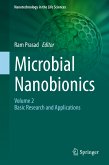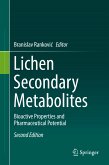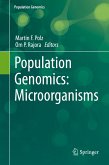Phototrophic prokaryotes are collectively of great interest for a number of different fundamental and applied perspectives and have long served as models for understanding such basic fundamental biological processes as photosynthesis and respiration. On an ecological/environmental level they are extremely important, being the most abundant photosynthetic organisms on earth and responsiblefor the majority of the primary productivity in the oceans. They also hold great promise as biotechnological catalysts, being able to couple solar energy conversion through photosynthesis and carbon fixation to the production of biofuels, commodity chemicals and neutraceuticals.
The book is recommended to advanced students and scientists dealing with life sciences, especially in genetics, microbiology and molecular biology.
Dieser Download kann aus rechtlichen Gründen nur mit Rechnungsadresse in A, B, BG, CY, CZ, D, DK, EW, E, FIN, F, GR, HR, H, IRL, I, LT, L, LR, M, NL, PL, P, R, S, SLO, SK ausgeliefert werden.









